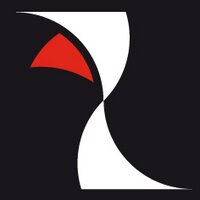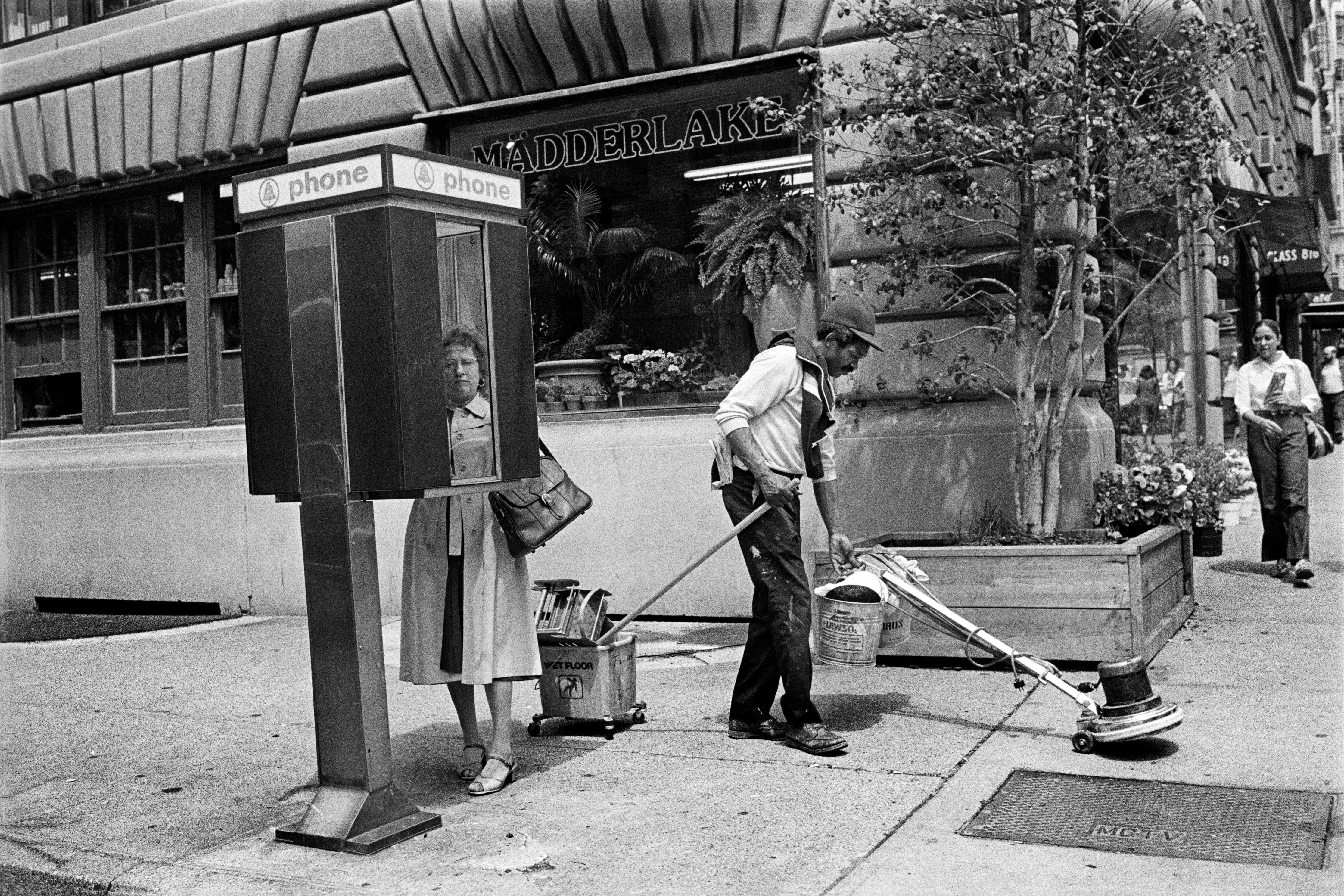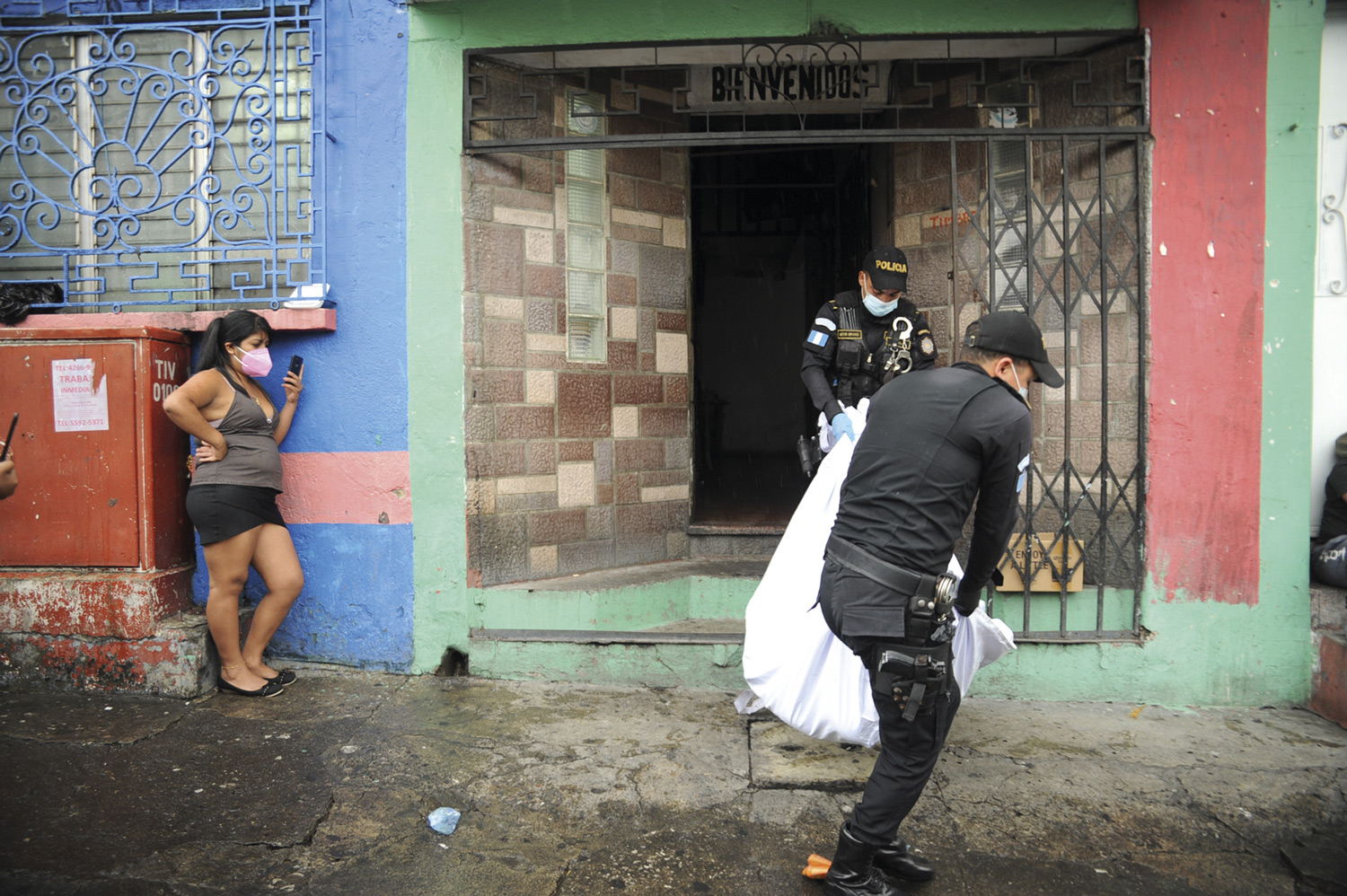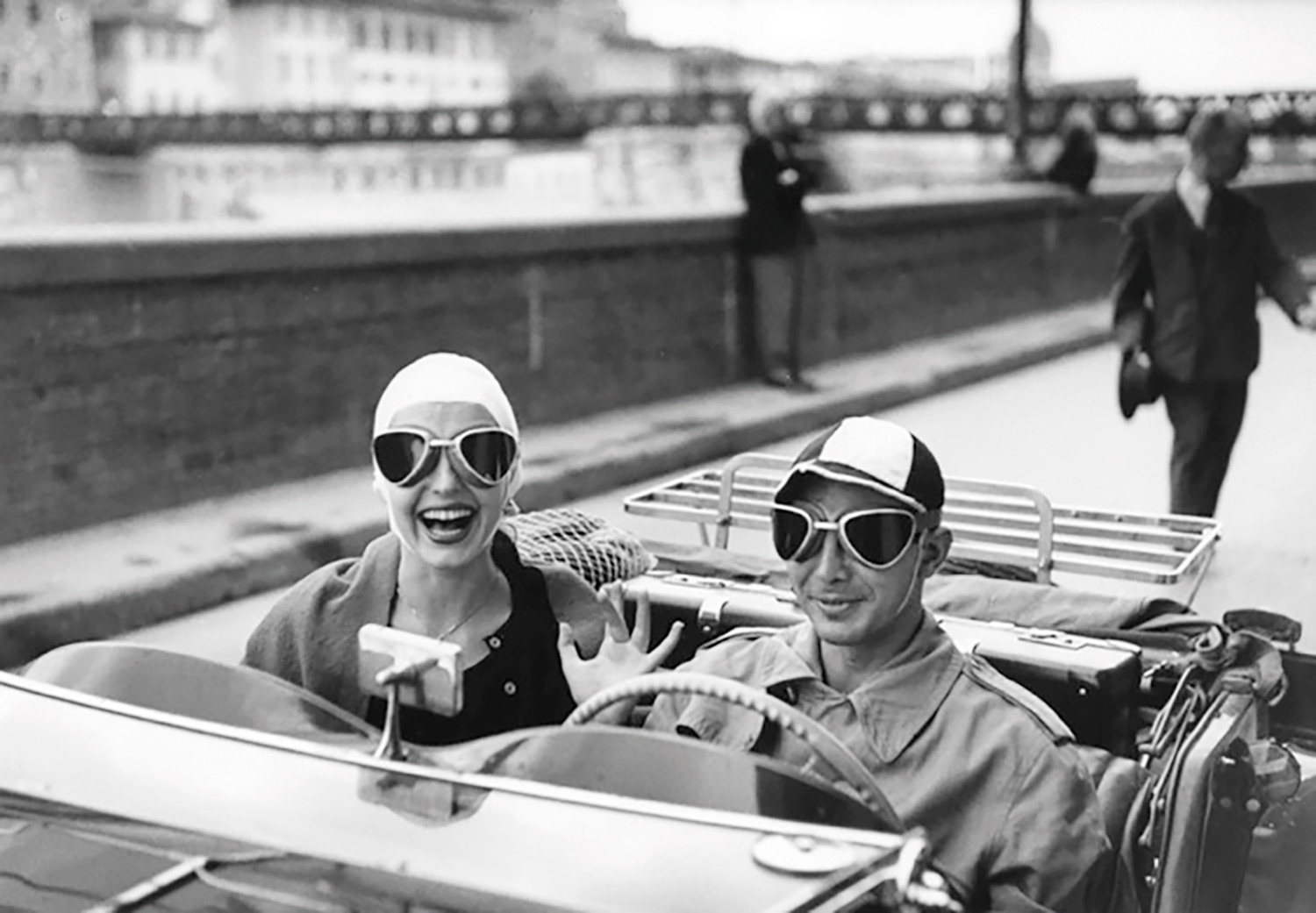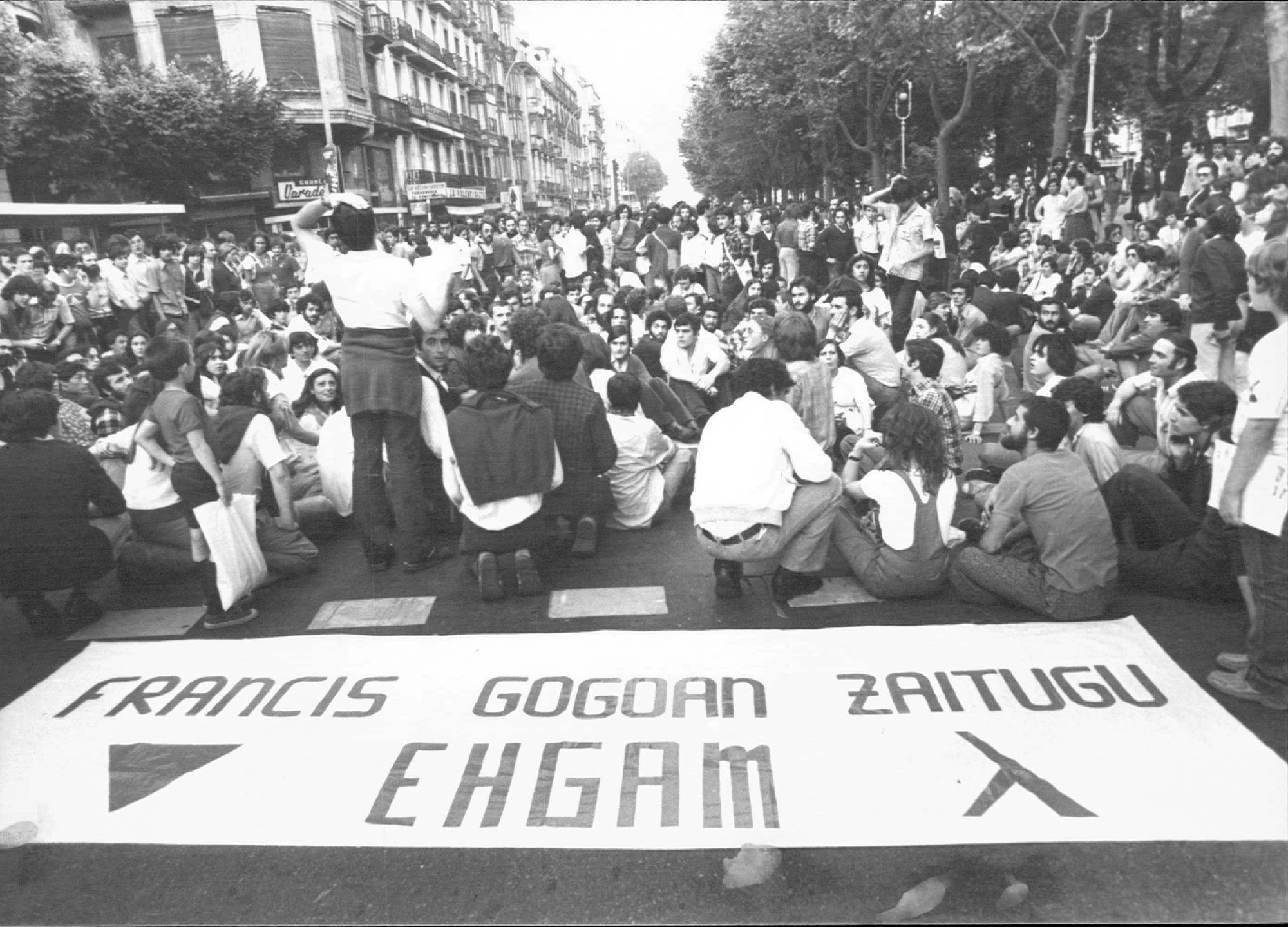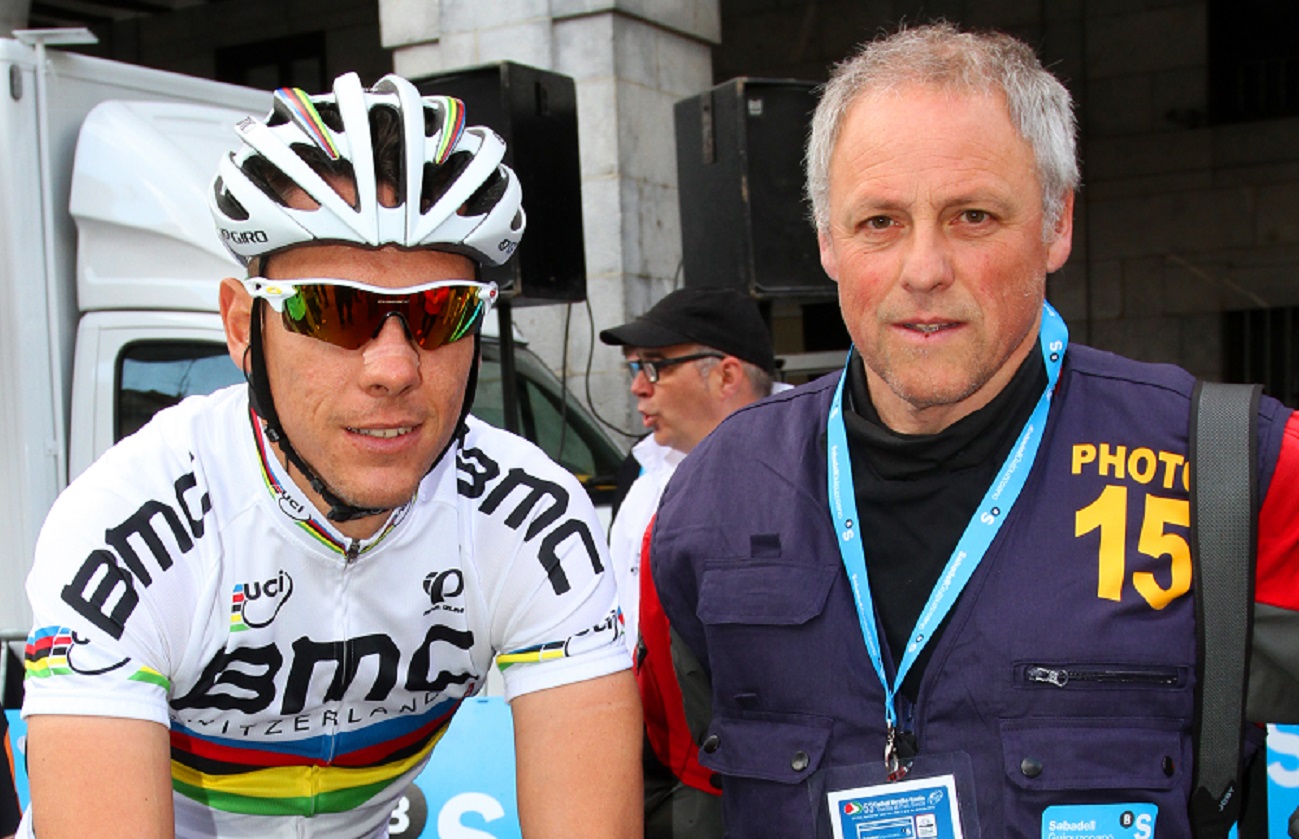"Image is a form of expression, I show anger, love, I mean me"
- In Barkoxe, Polo Garate (Donapaleu, 1967) has quoted us before his father’s Beribildegi. The hum of the motorcycles repaired on-site make sense with the fans of the Xiberutarra photographer thanks to the mechanics of the tools. Lover of mountains, dreaming of the sea and the sound of his Harley that makes him travel. Before we go back to the Tolosa studio, it's taken us to the Chapel neighborhood to have coffee.

From Barkoxe to Tolosa, tell us your way.
I've often gone from Barkoxe to Tolosa. My photographic studio is in the center of the Occitana capital. In it I work commercial photographs and my personal projects, but I'm Barkoxtarra and I'm very attached to the people I've never left. When I was 17, I went to Tolosa to study photography and I was there to work. I chose Tolosa because I didn't want to go to Paris or Bordeaux, maybe for pigeons and fungi. I also chose Tolosa for being multicultural and for the world. You can say that the discovery of music, and especially the punk roka style, has moved me away from these hills, to live music more intensely. Maybe at first, photography was just an excuse sold to parents.
When I was young at Barkoxe, I almost didn't take pictures, I needed renovation and I didn't see the treasure that was in front of my eyes.
What do you prefer to work, the wide corners of Xiberu or the study of Tolosa?
I prefer Barkoxe's reassurances for work. Tolosa has not caught her in photos, is well located, is close to Barcelona, and above all has the Pyrenees nearby, later I understood that because of that closeness I chose her. The Bordeaux Plural is closer to the Basque Country than the Tolosa, perhaps because of its seafaring taste and « Sud-Ouest ». It is difficult for me to see Tolosa as a city in the south-west. Here too is the same with our location, we are in the north of Euskal Herria and for some it is the south of France, the same as for the south.
On the other hand, I like contrasts; when I left Barkoxe, I went to live in the mining district of Empalot de Tolosa, one of its tall towers; I really liked the contrast, I made a lot of photos in that neighborhood. When I was young at Barkoxe, I didn't take almost pictures, I needed innovation and I didn't see the treasure that was in front of my eyes, I drowned in the day-to-day, and it seemed to me that everybody thought the same thing. I looked different, I thought I thought differently. I also felt marginalized for not knowing the language, because I went to school very young and at that time it was forbidden to speak in Basque, the friends of the surrounding villages were punished for speaking in Basque. That closed me completely, I saw the Basque language as an ugly language. Then I tried to fill that gap, playing the ball or dancing, as a singer in the masquerade. They called me "Kantiniertsa-punk," because when I was 12 years old, I knew the music of The Clash and Sex Pistols, that atmosphere of contradiction, that freedom is still a travel companion.
When did you think you would like to be a photographer for the first time?
It's been a turning point; when I was at Oloron College, in the fourth, the priests proposed to us a week to get to know the audiovisuals in which they asked us to choose between photography and video. There, out of class, I found the photo machine in my hand. I had just released the Canon AE1 instrument, and there I had the revelation. We spent the day in the village collecting photos and then developing them. Before we had a little thought so we didn't take pictures out there, and so I knew the trade. Maybe I was also attracted to such a mechanical aspect as I am a mechanist child and I like beautiful mechanics, so I thought I was in the hands of a nice mechanics to do everything I wanted. And so it's been so many times, it's given me a lot of freedom to live, to travel, to meet people, I've done very little against my will. In the early days, maybe, when you're a young photographer, you get a few requests, but over time, it's a job that's done at ease, to the point of business. This has helped me develop my personal photograph. I was 13 years old when I realized I wanted to be a photographer, but I knew right away that I didn't want to do wedding or sports photos; I was clear that I wanted to create photos to appear in magazines that I used to steal at that time by school. Every month, I wanted to take out the magazines Zoom or Photo, I thought I saw works by free and uncomplicated photographers.

Newspaper reporter, art photographer? How would you define yourself?
They put labels on us, but I don't claim a grain, I'm a photographer. They say that I'm an artist, and I think it's right, because art is natural, personal, and I try to be honest in everything I do. Sometimes I get clues so I don't hurt anyone; I take the pictures, although I know I'm not going to show them all. Image is also a form of expression, I show my anger in images, my love things, I mean me. I think an artist speaks of himself, if not, he's not a real artist.
They called me "kantiniertsa-punk," because when I was 12, I met the music of The Clash and Sex Pistols.
Do you think your personality influences your work?
Yes, it is she who decides everything because I work for smell, without training. When I travel, I prepare something, but then I don't follow that path, I do it according to encounters, intuitions. I think it's a practice of the traditions inside of me. Photography is usually a matter of choice, you have to choose the frame, the light, and then you have to go back up to get that light. Working without a hurry is also part of my cultural identity, going to the essentials, fleeing the ornaments, are in favor of my xyberutar, of the baserritarra. It seems to me that people on the coast live faster, but not as fast as in big cities such as Toulouse or Bordeaux. I believe that in Xiberua it is open people, who are interested in many things, although on many occasions it seems to be the opposite. That also makes me feel. At Barkoxe, Topet Etxahun is proud to be a citizen, it's an example to me, man has killed him with love, and that's very smart. Maybe loneliness, time, silence offer us the opportunity to reflect, to create.
On the other hand, a photo can become a dangerous weapon in the media adibidez.ka
Should an image express something by itself?
I think yes, you have to tell something in yourself, so you're picked from time to time. On the other hand, people like to explain my images, talk about the context, what I've wanted to express; maybe it's the time that asks for it, there's a lot of things that you do, for me it's not necessary. I talk very little about my work, much less about myself, so I take pictures, it's a form of expression for me, and that's what I normally do.
Image is a form of expression, I show my anger in images, my love things, I mean me.
Where do you get inspired from?
Most of the music, there's melodies, there's words, there's a kind of music, those are the ideas you give to create a series of images. I take pictures and ponder when I have them in front of me; I prefer that way of doing. I've always been anti-school, I always have difficulties with power. When I started doing photography training, I thought I was going to give myself the opportunity to open up the spirit and instead, I found a flood of rules to learn the technique, to learn too many things. When I was 17, I didn't want that, I wanted to swallow my life, no one needed to explain how that was done. Luckily, after training, I learned the technique with a photographer. He told me that I wouldn't have an image culture, claiming it was my duty. On the other hand, I was proposed to go to fine arts, but I refused. I wanted to do my art, with or without success, that wasn't important. I take pictures of commerce to pay bills and eat them, and I find that interesting, or at least not so harmful to the spirit. I have a hard time with photographers who only see their head as an artist, I don't know if it's always as honest as what they say when I see that they're just dealing with fashion issues. I try to be honest.

I think disability is the only way forward. Being looking, resting, will give you something different from your work. I love differences.
What is the primary quality of a photographer?
Have good shoes to walk and take time. But sometimes some photographers recreate everything, others use the world around them. But you have to know how to take your time without going crazy. In response to a request, I have seen a lot of personal work that has been done hastily because of the reduction in time and the result is obvious. On the other hand, a photo can become a firearm, for example, in the media. So I can talk because I'm not a press photographer. I do many little potretas and the little potretas are like tango, they dance in pairs, the photographer is never alone. First we leave the ego aside, we are humble in front of the person, there is a psychological part that I like and most of the time it has fun, I think we feel good with each other. There's an exchange, I like exchanges.
Do you have any relationship with the photographers here?
I know some photographers but I'm not interested in where they are, that's not important. For me, the important thing is to be Euskaldun in what I am, but that doesn't limit my work, it can make me a regionalist, and I'm not interested in that. I have had the opportunity to meet people from all corners of the world at festivals and I very much liked their work, although very far from the Basque culture. I'm really a figure in love. Then I see if something I like or not and I don't care about the author's origin, on the contrary, you may know it, so I prefer universal language.
I have never liked tourism, it means dependence on the people, customs, it makes them folklore.
I'm Euskaltzale, Abertzale, that's never going to change. I don't master the language, but thanks to the photo, I can speak with Basques, French, English, Spanish or Italians and I like the universal part. Perhaps I was also from the people for the resonance that meant not knowing Euskera; for example, in moments such as being talking to others as cantinera; even if you follow the thread, there comes a time when you lose yourself. When we were going south to dance, it was worse, because the people there would approach the dantzaris that knew Euskera and I would stay alone. The Basque Country must provide the means for boys and girls to be present. Perhaps I am pessimistic about that, but I see that today this people have opted for radical liberalism and I am afraid that this will lead to the disappearance of speech. It has already been lost on the coast and let us not say that the environment, the corners without nature, the buildings, etc., is ugliness. At the same time, I'm passionate about the sea; my mother's ashes are thrown in Santa Barbara, my corner. My mother offered us a great place, but she didn't foresee that we couldn't go in summer by the stranger. It is insane, I have never liked tourism, it means dependence on the people, it turns customs into folklore and it only gives work for two months, only to those who have decided to devote themselves to it. In the meantime, try to fix yourself.
What is the project that you have in your hands?
I come to live in the one that was my father's library and I'm going to set up a photo studio with a photo gallery, it's going to be a place to share. On the other hand, I have the project of organizing a photography festival in Barkoxe to invite photographers from all over the world and propose exhibitions in all the neighborhoods of the city.
Has technological evolution changed your life? And the way we work?
I work in analogue on my personal pieces that appear in galleries or exhibitions. The job is totally different, it takes longer, the result is totally different. The result of the number is not good, especially when you do potrets. They ask us to work on the number so that customers can save money. To me, this doubles my working time, in image classification and post-production, because I try to give my numerical images an analog air, in colors and contrasts with the analogue one.
But at the same time, I'll be able to go back to Barkoxe because of the technology, because I can work from here thanks to the Internet and send images. That, in Xiberua, in peace of mind, in silence and over time, gives me the opportunity to work better. Technology also allows me to exchange; before it was impossible to exchange images with anything else, with food or with money, as films, developments and technical expenses were generally too high. Now, with the number, more and more people need images to sell on the websites or to propose services; I make a lot of pictures also for social networks. Personally, the Instagram account is a showcase for me. I also have a blog where I show business papers. On my website, I show the images for the exhibitions. In this sense, I like one aspect, because I have close relationships with some clients. However, I'm not going to start taking pictures of what I like or do to upload to Instagram. It is a real trade instrument that can be beneficial.

Photoshop, little, much, nothing.
I pay EUR 12 a month for you to have it at home, they have deceived us well! I adapt the contrasts, add some light, I can occasionally remove a fist or a embedded light, and it's, I don't change anything in people's images. I use it to develop and improve images, because the gross numerical image is not enough for me, although some are used as it is. I don't do Photoshop montages, in many cases clients do after receiving my photos, but that's another field of work. Working in analogue requires you to make precise layouts of the image, that you expect the right light so you don't have to add it later. It's important to be waiting.
I think disability is the only way forward. Being looking, resting, will give you something different from your work. I love differences.
What does Polo Garat do without a camera?
Maybe because I'm from the mountain and I need my legs on earth, but the sea makes me dream.
He's looking at what he's going to take out in the photo, reflecting, and he's spending moments with his friends. I'm not a furious shooter, I don't take many photos. I spend a lot of time in the approach, in the reflection, before taking pictures knowing people. It takes time not to fail, because I've seen a lot of bad deeds on magazines. I work from time to time with some journals, but very little on current issues, most of the time it is long-term works, with a minimum of ten images, in which you can see the work of approaching the subject.
On the other hand, I forgot to say that my hobby for motorcycles is as important as that of the photo. The two go at once for me, I'm free on the bike, I have a lot of things going through my head, I would have to stop many times to notice all the things that appear to me.
Travel?
It's given me a lot of freedom to live photos, to travel, to meet people.
A lot, I've traveled too much in an era and I've lost myself. So I decided not to take more cooked and travel alone on my Harley. I take my bag tied to the bike and I feel closer. When I was traveling, I always chose a place where I knew someone, to share moments and not go as a simple tourist, although traveling, we are always tourists. Thanks to my journey I have wanted to photograph Barkoxe or the people around me to collect my memories. I can be eager to travel all over Europe, with petrol films and photos, on the motorbike, to stand and take pictures at any time, whenever I want, without any specific goals or targets.
Black and white? Color?
The world is colorful, then black and white, it's like wearing black glasses. At first I've done a lot, but then I wanted to document it. In black and white, I don't think I know when my photos are; as for color, you can guess right away when they're made, it's marked. It's a poetry that excites me to dedicate myself to you and to the black, but when I want to stay without seeing anyone, it's like when I wear the black glasses. The truth is, I'm from Entrabal, but I use that diversity of senses to express things in my images.

What about immaterial heritage? Is it important to you?
I think it is very important. ' To know where to go, you have to know', I do not say so, but I am perfectly clear about what I think. They have made my roots, I have grown up in Barkoxe and my immaterial heritage is rural; the city has left no trace, and today I am always more Barkoxe than Tolosa. We can also mention another aspect of heritage, technology, but I do not think we can talk about heritage in such an ephemeral way.
Do you want to answer something that I have not asked you to finish?
I would like to ask if I would like to rent a small apartment on the coast all year round. I'd like to have a little study to look at the sea, in the area of Bidar and Getaria, to heal, reflect, work. The sea attracts me vividly, I remember those who have gone to find luck, some have come back, others have never, I tell myself many stories. The sea, my favorite telegraph, maybe because I'm from the mountain and I need my legs on earth, but the sea, the sea, creates my dreams.



